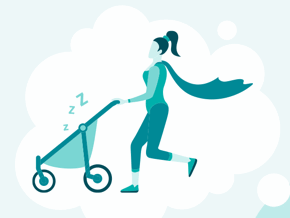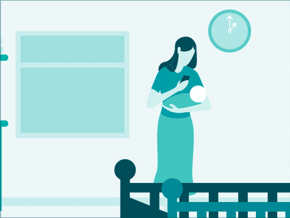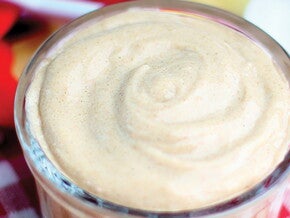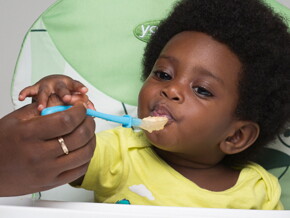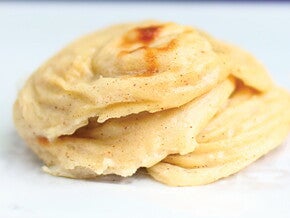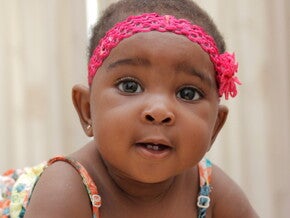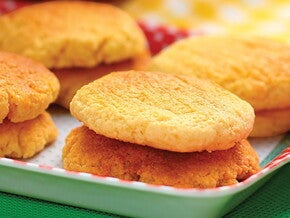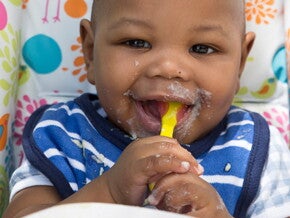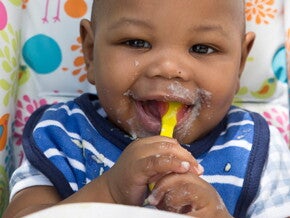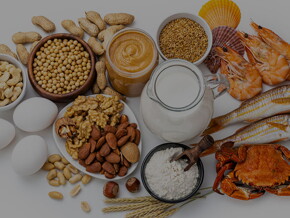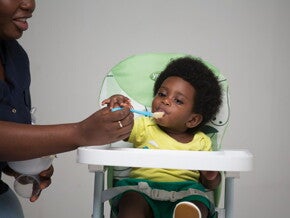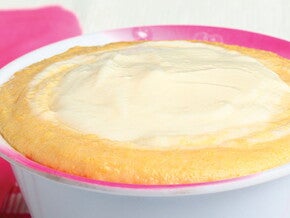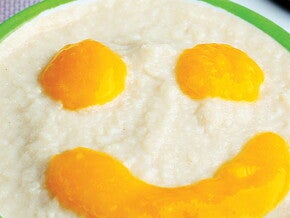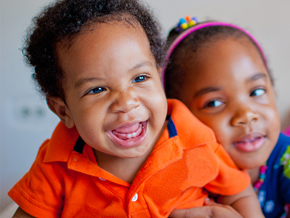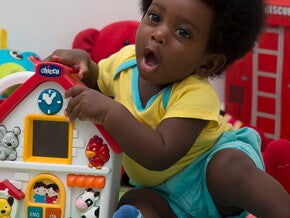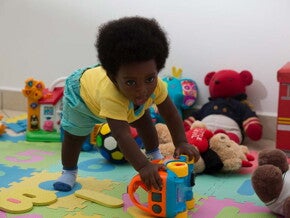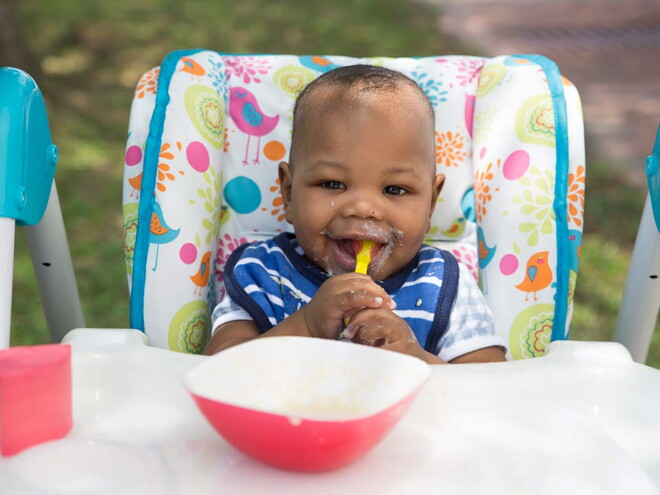
Once your little one has perfected his pincer grasp, crackers, and small pieces of toasted bread are good finger food choices, as are cooked vegetables (such as halved peas or finely chopped cooked potatoes and carrots) and mashed fruits (such as applesauce or bananas). Not only are these healthy choices, they're also easy to transport for picnics, trips to the babysitter, or to family-friendly restaurants.
Safe food handling: Make food safety your first priority
Safe food handling to avoid contamination of your toddler’s meal should always be a top-of-mind priority. Meats should always be well-cooked. Always serve small portions from your child's own bowl or plate, and throw away any leftovers. Never mix food back into the serving bowl or into a partially-used baby food container.
Follow these tips to make finger foods safer at mealtime
Be there. Always stay close by when your little one is eating finger foods. Some foods may cause some difficulty and could pose a choking hazard. It's a good idea to learn how to intervene if your little one is choking; your antenatal and postnatal classes may have taught you some tips on choking, but ask your healthcare professional to show you what to do.
Make sure he doesn't bite off more than he can chew. Cut foods into small, baby or toddler-sized pieces rather than offering a large piece.
Size counts. Avoid feeding foods that could be swallowed whole, such as the ones listed below.
No meals on wheels. Snack time shouldn't happen on the go, so avoid serving finger foods in the car or stroller.
What not to feed babies: Foods to be careful with and foods to avoid until those molars come in
Some nutritious, seemingly safe finger foods can actually be unsafe unless they're prepared the right way. If your baby only has his front teeth, he's capable of biting off a chunk of an uncooked carrot but he can't actually chew it up, which means he could choke on it. Small, round or cylindrical foods have the greatest potential to become choking hazards.
Foods to be careful with until your child reaches the age of four:
- Hard raw vegetables pieces, such as carrots should be grated or finely chopped into small pieces no wider than baby’s index finger. Alternatively, lightly steam vegetables to soften them.
- Small round foods such as whole grapes or cherry tomatoes - be sure to chop into halves or quarters.
- Cylindrical foods such as sausages and other meat chunks should be cut lengthwise into small pieces.
- Dried fruit should be soaked in water until soft and then chopped up.
- Thin peels should be removed from fruits such as apples and remember to remove the seeds from fruits such as oranges.
Foods to avoid until those molars come in:
Until he's much older and has his molars, by about 3-4 years of age, some finger foods aren't safe no matter how they're prepared, such as:
- Celery.
- Any whole nuts, such as peanuts, almonds or cashews.
- Popcorn.
- Marshmallows.
- Hard and gummy candies, suckers or gum.
- Fish with bones.
What not to feed babies
Not all foods are appropriate for your little one. Below is a list of some things you may want to avoid for now if your child is under 1 year of age.
Whole cow’s milk
Whole cow's milk is a poor source of iron and should be avoided as the fluid portion of baby's diet until your baby is at least 9-12 months of age. By introducing cow’s milk too early you could be displacing other nutritious foods such as iron-rich foods which may increase the risk of iron deficiency.
Honey
Avoid honey, including pasteurized, as it may cause a type of food poisoning called infant botulism. Honey should not be added to baby food, or be used on a pacifier or soother. After your baby turns 1 it is safe to introduce honey.
Sugar & salt
Avoid adding sugar and salt to foods that you prepare for your baby and the rest of the family. Allow your little one to experience and develop a taste for the food’s natural flavours.
Raw and unpasteurized beverages
Babies and toddlers should not consume raw or unpasteurized beverages. Pasteurization is an important step that eliminates harmful bacteria. Unpasteurized beverages, such as some types of apple cider, can be harmful to babies and toddlers. Read the label when choosing drinks for your little one.
Over one year
By one year of age your toddler can eat most family foods with the exception of foods that may be choking hazards and those that are spicy. Just as with adults there are certain foods that should be limited or avoided, especially in toddlers who are still developing their likes, dislikes and eating habits.
- Sweets and treats such as candy, chocolate, and chips should be limited for special occasions and should never be used to bribe a child into eating healthier foods.
- Juice and sugar sweetened beverages are not necessary for young children; offer water if your little one is thirsty.
